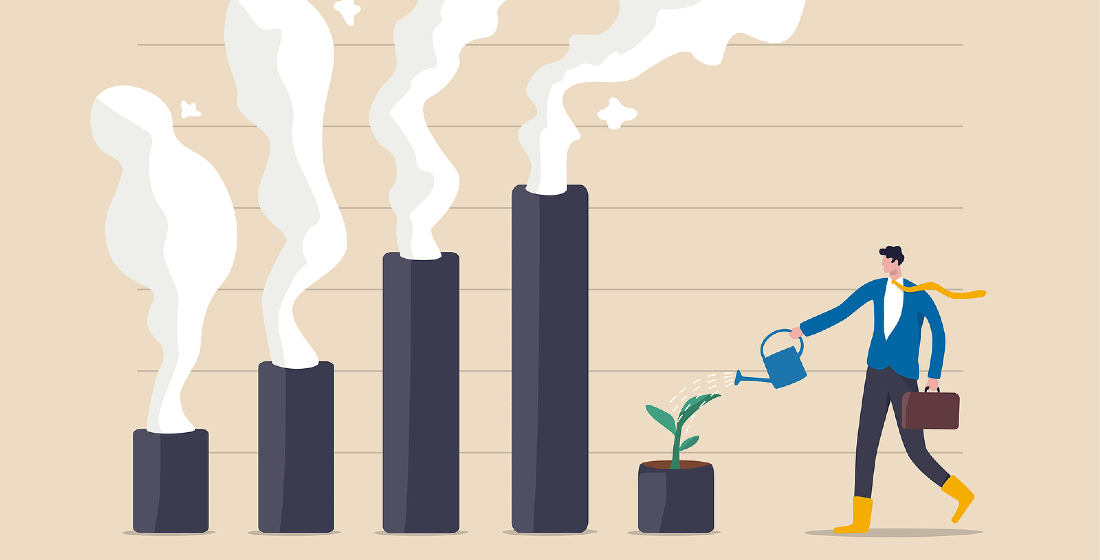The energy crisis: Will ESG take the back seat?
As the energy crisis worsens, a multitude of issues surrounding ESG arise – will consumers be able to afford the price hike? And will the recent retreat of investments in fossil fuels in favour of renewables exacerbate the crisis?

The energy crisis is yet another example of commodity finance news taking over the mainstream outlets. In October, headlines were all about collapsing energy suppliers, price spikes, debates about whether the sector should be made public, and how long all of this is likely to last.
Looking at the situation from an industry perspective, surging prices are likely to stay. Gas prices have hit an all time high in Q4, with Asian spot prices having skyrocketed by nearly 1000% in the past year – a change which led some analysts to predict a shift to longer term contracts in avoidance of seasonal price hikes, which also struck last winter.
Despite the urgent journey to net zero being at the forefront of everyone’s minds following COP26 in Glasgow last month, even coal prices and demand are soaring – the coal price has jumped 400% this year to $270 per tonne, according to Forbes, and China and India are upping mining.
The unexpectedly strong rebound in energy demand and shortages of coal and gas have caused oil prices to hike too, leading to concerns around longer-term issues such as inflation and recession. In Europe, headline annual inflation rose to 3.4% in September, off the back of a 17.4% leap in energy costs. These figures are forecast to rise in the coming months, as they do not include the last three months of the year, during which prices have remained high.
According to The Economist, a 10% rise in energy is associated with a 4.7% drop in consumer durable spending. While the extra money consumers will be spending on energy has to come from somewhere, the energy crash could be alleviated if consumers are able to supplement higher bills with savings – something that the pandemic would have made even easier for many middle-class consumers who worked from home during 2020 and saved extra money, compared to the working-class who were hit hardest during the lockdowns of 2020 and 2021.
Of course, humans are adaptable and the longer that prices stay high, the more efficient households will become at reducing their energy expenditure. But this potential need to reduce energy expenditure within homes comes at an interesting time, as consumers are beginning to be more mindful about where the energy that powers their homes comes from, with a preference for greener energy. In other words, as consumer demand for energy is becoming more complex from an environmental standpoint, it is also changing from an economic standpoint.
Although governments safeguarding consumers from high energy prices is under discussion, this would mean prioritising use of the cheapest and dirtiest energy, something that will set back progress for the energy transition. It would be of huge benefit to consumers, many of which are now very concerned about the affordability of energy within their homes, but a sacrifice to the ‘E’ part of ESG in favour of the ‘S’ is something that is unlikely to happen, at least outside election years, as the social side of ESG is often pushed to the back of the priority list.
Another ESG issue related to the energy crisis is that due to the energy transition, even the cheapest fossil fuels – which make up the majority of the world’s energy – are less readily available now. The extent to which fossil fuels have been demonized in recent years has meant that a huge number of institutional investors and governments have reduced or cut their exposure to the sector entirely, instead opting to capitalize on lower carbon options. The problem with this is that renewables are simply not yet able to plug the gap left by fossil fuels, and as the energy crisis worsens, it is apparent just how reliant the world still is on high carbon energy, whether there is enough to go around or not.
Become a TXF subscriber for unrestricted access to TXFnews.com 365 days a year
Contact us for individual and team rates by emailing subscriptions@txfmedia.com
Take a look below at some of the exclusive subscriber articles published last week
TXF Global Trade Report 2021
TXF's global trade report 2021 is available to download now.....Read on here
COP26: Looking beyond the headlines
The Glasgow Financial Alliance for Net Zero (GFANZ) took centre stage at COP26. Although initiatives like GFANZ will unlock further capital for green infrastructure, lenders and investors may still struggle to deploy this capital at scale without highly effective de-risking mechanisms and substantial project pipelines.....Read on here
BU AGM: SERV's Suter and SACE's Gambelli talk shop
TXF spoke with Robert Suter, head of international relations & business policy at SERV, and Irene Gambelli, a senior adviser on international relations at SACE, in their capacity as the outgoing chair and vice-chair of the BU ECA Committee, respectively. Robert and Irene discussed: the health of the ECA market; its changing landscape in the wake of the pandemic; information sharing strategies; their expectations going into 2022; and reflections on their time on the BU ECA Committee....Read on here
Further details surface on Dogger Bank C financing
Further details have surfaced on the £2.9 billion project financing of the 1.2GW Dogger Bank C offshore wind farm, which reached financial close at the start of December.......Read on here
Ravi Nichani starts new role at Vena Energy
Ravi Nichani has begun his new role as head of corporate finance at Vena Energy in Singapore. Before joining Vena Energy, Nichani spent six years at Credit Agricole, where he worked as a managing director and an executive director as part of the debt origination and advisory team......Read on here
Tanguy Claquin promoted as part of Credit Agricole sustainability strategy
Credit Agricole has appointed Tanguy Claquin as global head of sustainability, as part of a broader ESG strategy.....Read on here





